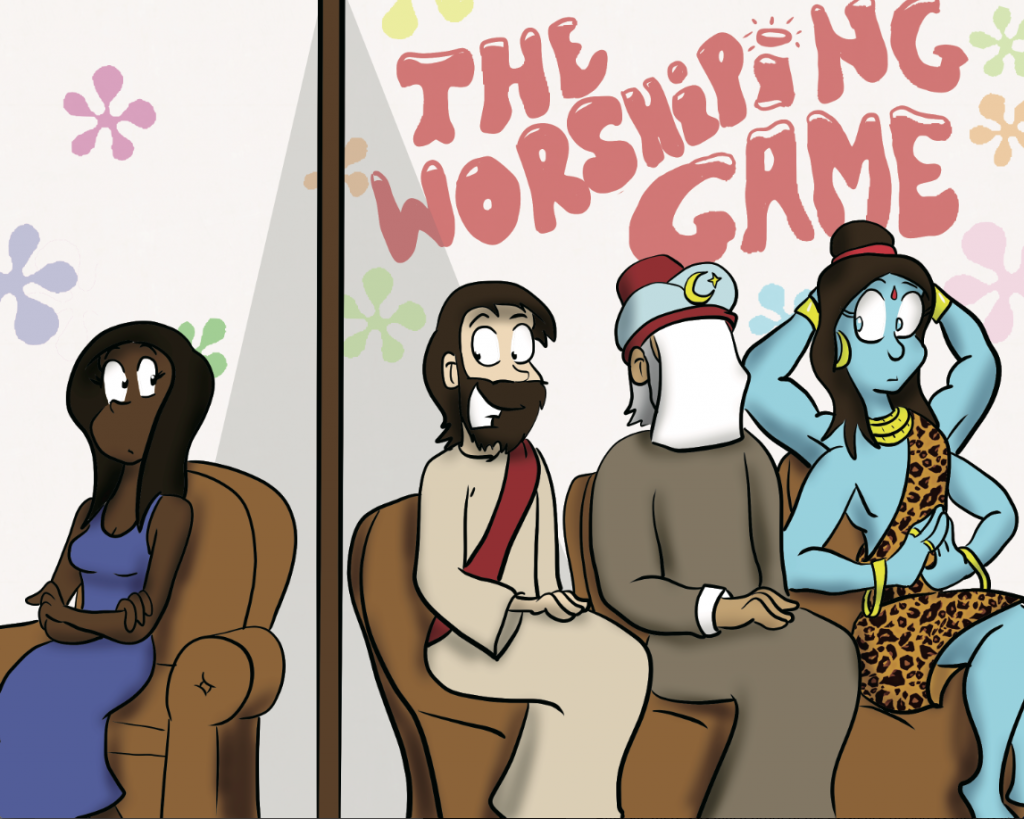
Spoiler alert: it’s not yours
By Aleeze Asif, Contributor
Any person with religious beliefs can testify that it isn’t necessarily scientifically accurate or logical. Faith after all does mean belief without evidence. So through what merit do we conclude which religion is “right”?
The second we begin to argue the superior validity of one religion over another we have shot ourselves in the foot. The only proof of one religion’s superiority over another is when a religious scripture states it, which is essentially saying Christianity is superior because Christianity says so. Every religious person believes that his or her religion is superior.
Faith or blind belief is a major part of most mainstream religions. When we believe without evidence there is no room for argument or discussion regarding the validity of a verse or a chapter in a holy book. So who is to say who is right? After all, there’s as much proof of the existence of God as there is for the existence of fairies or unicorns.
Perhaps the teachings of a religion can grant superiority for one over another. For the sake of simplicity let’s take into consideration Christianity and Islam, the two religions with the first and second largest followings in the world. Undoubtedly both of the religious scriptures have an abundance of positive and progressive messages for their time. But once we take these religious scriptures off the pedestal and study them critically, we see teachings that can be considered archaic and grotesque in present time.
For instance, both the Bible and the Quran promote sexism in some shape or form by endorsing the solidification of outdated gender roles in society and discouraging women from taking leadership positions (e.g., Timothy 2:11-12 in the Bible and 4:34 in the Quran). However, it must be noted here that Christianity and Islam are over 2,000 and 1,400 years old. Both holy scriptures are chock-full of teachings most people would never think to apply in the 21st century. When we think about how much the world has changed in the last 50 years alone, how can a religion or its teachings ever be timeless? Due to the inevitable fact that most religious teachings cannot face the force of time, I think it’s safe to rule out holy teachings as a factor on our scale of spiritual superiority.
Another problem that one encounters when comparing religions is the significant room for variation and interpretation. Even within the same country, the same religion is practiced in a variety of different ways. For example, in Swat, Pakistan women aren’t allowed out of their houses, but 580 kilometers away in Lahore, women have much more freedom. There are more than 73 sects within Islam, and the Christian encyclopedia counted 33,830—and of course, they all believe they are following the “right” version of the religion. How is one to compare two religions when there is so much variation within them?
Is there really no way to systematically compare two religions? I ask: why do we need to compare religions at all? Do we really need to prove all other religions “wrong”? For most people religion is less of a rulebook and more of a source of spiritual solace. One religious scripture can resonate differently to two different people. That doesn’t mean one of them is higher in intellect, it just means they are two different people, who have lived two different lives and see the world through two different lenses.
As long as your faith makes you a positive, constructive, and progressive person, spending time trying to justify its superiority to yourself or to others is irrelevant and unproductive.



